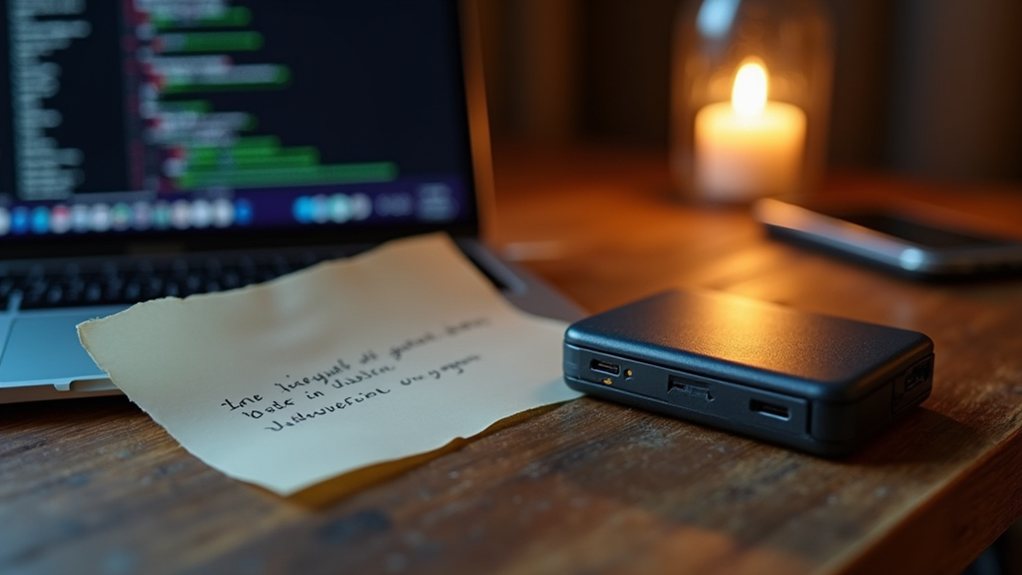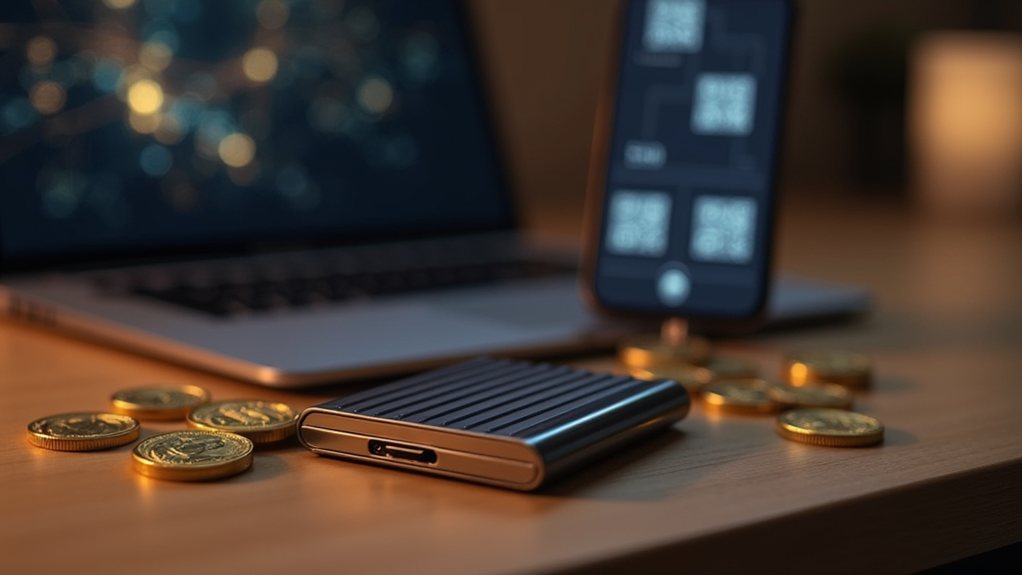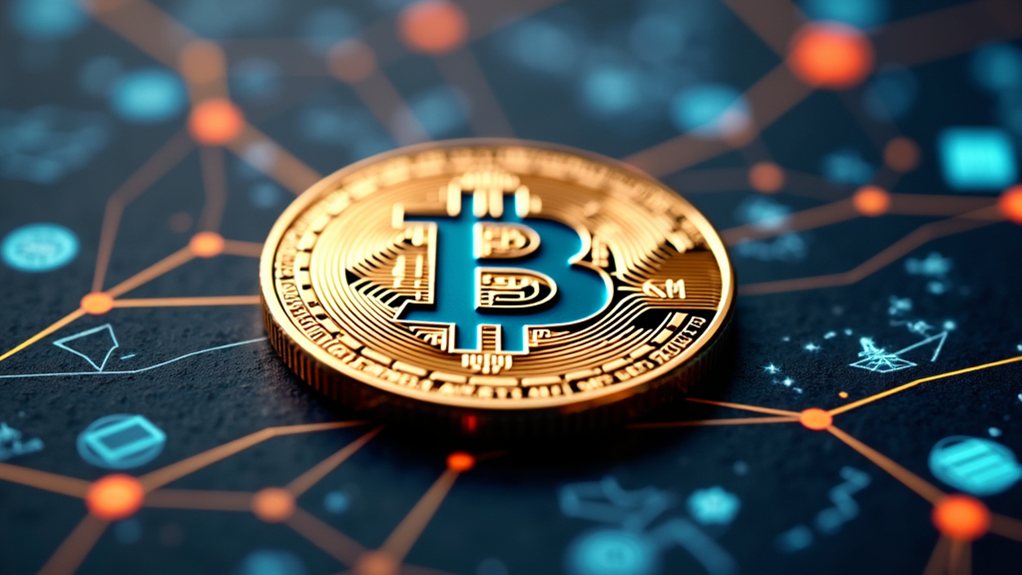A self-custody wallet gives users complete control over their cryptocurrency private keys, allowing direct ownership without relying on third parties. These wallets come in various forms including hardware, software, mobile, desktop, and paper versions. They offer enhanced privacy, freedom from censorship, and access to more blockchain services. However, users bear full responsibility for security—losing private keys means permanently losing funds. Exploring self-custody options reveals the true meaning of "not your keys, not your crypto."

While most people store their cryptocurrency on exchanges like Coinbase or Binance, self-custody wallets offer a different approach to digital asset management. These digital wallets, also known as non-custodial wallets, give users complete control over their private keys. This control means users truly own their cryptocurrency without relying on third-party intermediaries to manage their assets.
Self-custody wallets align with blockchain's core principle of decentralization. When users have their private keys, they can interact directly with blockchain networks. They can send or receive crypto whenever they want without asking permission from anyone. This direct access also allows them to connect with decentralized applications, commonly called dApps.
True crypto freedom means holding your keys and interacting with blockchain networks directly, without intermediaries or permission.
There are several types of self-custody wallets available. Hardware wallets, often called "cold storage," store keys offline for maximum security. Software or "hot" wallets connect to the internet, offering convenience but potentially less security. Mobile wallets run on smartphones, desktop wallets operate on computers, and paper wallets store keys in physical form. Each type provides different levels of security balance between security and accessibility based on a user's needs.
Security is a major aspect of self-custody. These wallets implement encryption and other protective measures to safeguard assets. Unlike exchange accounts, self-custody wallets aren't vulnerable to exchange hacks that have resulted in massive crypto thefts. However, users must take responsibility for their own security practices.
The benefits of self-custody are significant. Users enjoy greater privacy since they don't need to share personal information with exchanges. They face less risk of censorship or having their accounts frozen. Self-custody also provides access to a wider range of blockchain services that might not be available through exchanges.
Despite these advantages, self-custody comes with challenges. If users lose their private keys or seed phrase (a backup recovery code), their funds are permanently lost. There's no customer support to call for help. This responsibility can be intimidating for people who aren't technically confident. Users must also stay alert to threats like phishing attempts and malware. Companies like Trezor provide additional security through multi-share backup features, allowing users to split their wallet backup into multiple shares for enhanced protection. Another significant risk with self-custody wallets is the possibility of permanent loss of funds due to human error when sending assets to incorrect addresses.
Setting up a self-custody wallet involves choosing a reputable wallet provider, downloading software or buying hardware, and generating new wallet credentials. During setup, the wallet creates a seed phrase that users must record and store securely. Many experts suggest testing the wallet with a small transaction before moving large amounts of cryptocurrency.
Self-custody represents the purest form of cryptocurrency ownership. It offers freedom and control but demands personal responsibility. As blockchain technology continues to evolve, self-custody wallets remain fundamental tools for those who embrace the original vision of truly owning their digital assets.
Frequently Asked Questions
How Do I Recover a Lost Self-Custody Wallet?
Recovering a lost self-custody wallet typically requires a backup recovery phrase. Users can enter this 12-24 word phrase into a new wallet app to restore access.
Without this phrase, options are limited. Some may try data recovery software on devices where the wallet was installed.
Professional recovery services exist, but they can't guarantee success. Most crypto experts say it's nearly impossible to recover funds without the backup phrase.
Can Self-Custody Wallets Be Hacked?
Yes, self-custody wallets can be hacked. Cybercriminals target these wallets through various methods including phishing attacks, malware, and social engineering.
Notable incidents include the 2021 BadgerDAO hack ($120 million stolen) and the 2020 Ledger data breach (272,000 customer details exposed).
Wallet vulnerabilities can exist in the code itself, as seen in the 2017 Parity wallet bug that froze $300 million in Ethereum.
Do Self-Custody Wallets Work Offline?
Yes, some self-custody wallets work completely offline.
Hardware wallets, paper wallets, and metal seed storage devices specifically keep private keys disconnected from the internet. This offline approach prevents hackers from remotely accessing funds.
However, users still need to connect to the internet temporarily when sending transactions.
Offline wallets provide stronger security but require more manual effort than their online counterparts.
Are Self-Custody Wallets Legal in All Countries?
Self-custody wallets aren't legal in all countries. While they're permitted in major economies like the US, UK, and EU, some nations have banned them.
China, Bolivia, Ecuador, Algeria, and Egypt restrict or prohibit cryptocurrency use entirely, which includes self-custody wallets.
Many countries require wallet providers to follow regulations like KYC/AML compliance.
The legal landscape for crypto continues to evolve rapidly worldwide.
What Fees Are Associated With Self-Custody Wallets?
Self-custody wallets typically involve four types of fees.
Network transaction fees vary based on blockchain congestion and are paid to miners.
Exchange fees of 0.1-1% apply when swapping cryptocurrencies.
Gas fees cover smart contract interactions and fluctuate with network activity.
Most wallet software is free, though hardware wallets require purchasing physical devices.
These fees are generally lower than those charged by custodial services.














